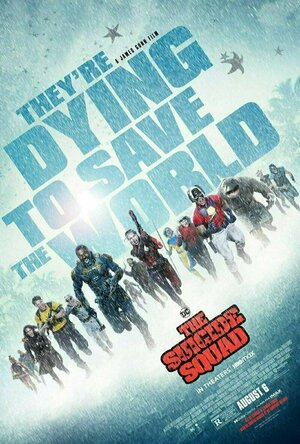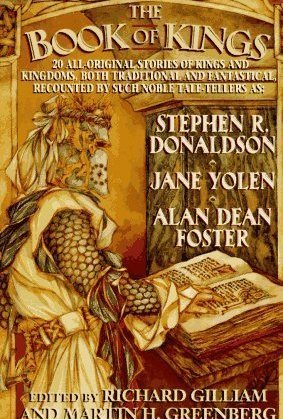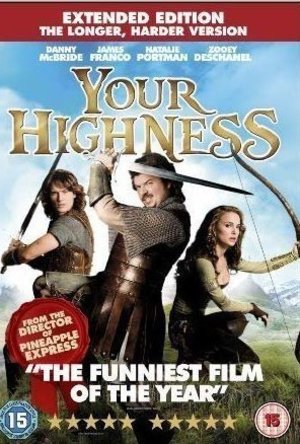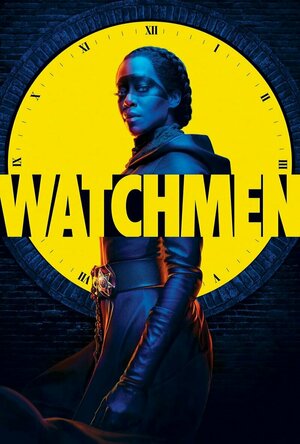Search
LeftSideCut (3776 KP) rated The Suicide Squad (2021) in Movies
Jul 31, 2021
Firstly, let it be known that The Suicide Squad is a far, far, superior movie to 2016's Suicide Squad (although, that's not exactly a tall order...)
It's fun, frantic, sweary, gory, and is, above all, unmistakably a James Gunn film.
The remants of the 2016 version that remain are improved, namely Rick Flag and Harley Quinn. Both characters are well fleshed out and likable. Stand them side by side with all the newcomers and you have a wonderfully weird line up of D-list DC villains. Amongst the massive ensemble, the meatier roles are given to Bloodsport (Idris Elba), Peacemaker (John Cena), Ratcatcher 2 (Daniela Melchior), Polka-Dot Man (David Dastmalchian), Thinker (Peter Capaldi) and of course, the show stealer King Shark (Sylvester Stallone). I would happily kill for him, and Sebastian the rat....
All of these characters are simply a pleasure to watch. Their interactions with eachother are frequently hilarious and the combined team give this movie a huge fricking heart that was so lacking back in 2016.
My main criticism is the pacing. After an amusingly brutal opening gambit, the whole thing takes a bit of a dive. The humour isn't quite enough to hold the slow-paced first hour together, and I found myself drifting on more than one occasion. I also wasn't a fan of the arty title cards that crop up throughout (with the exception of one during the films final act, which is quite possibly one of my favourite moments in the history of comic book movies...)
Sure, this whole part drags the experience down as a whole, but the last hour is an absolute riot. A fantastic scene involving Harley Quinn, a long hallway, and a javelin, marks a triumphant turn in proceedings, and the build up and resulting climax is batshit insane, with a villain I genuinely thought I'd never get to see in the big screen. It's horrifically entertaining and doesn't let up until the credits roll.
Ultimately, The Suicide Squad is heaps of gory fun, and a welcome addition to the mixed bag that is the DCEU. Personally, I would love to see Gunn return to the franchise in some form. Hell, give him the keys to the whole kingdom and see what happens.
It's fun, frantic, sweary, gory, and is, above all, unmistakably a James Gunn film.
The remants of the 2016 version that remain are improved, namely Rick Flag and Harley Quinn. Both characters are well fleshed out and likable. Stand them side by side with all the newcomers and you have a wonderfully weird line up of D-list DC villains. Amongst the massive ensemble, the meatier roles are given to Bloodsport (Idris Elba), Peacemaker (John Cena), Ratcatcher 2 (Daniela Melchior), Polka-Dot Man (David Dastmalchian), Thinker (Peter Capaldi) and of course, the show stealer King Shark (Sylvester Stallone). I would happily kill for him, and Sebastian the rat....
All of these characters are simply a pleasure to watch. Their interactions with eachother are frequently hilarious and the combined team give this movie a huge fricking heart that was so lacking back in 2016.
My main criticism is the pacing. After an amusingly brutal opening gambit, the whole thing takes a bit of a dive. The humour isn't quite enough to hold the slow-paced first hour together, and I found myself drifting on more than one occasion. I also wasn't a fan of the arty title cards that crop up throughout (with the exception of one during the films final act, which is quite possibly one of my favourite moments in the history of comic book movies...)
Sure, this whole part drags the experience down as a whole, but the last hour is an absolute riot. A fantastic scene involving Harley Quinn, a long hallway, and a javelin, marks a triumphant turn in proceedings, and the build up and resulting climax is batshit insane, with a villain I genuinely thought I'd never get to see in the big screen. It's horrifically entertaining and doesn't let up until the credits roll.
Ultimately, The Suicide Squad is heaps of gory fun, and a welcome addition to the mixed bag that is the DCEU. Personally, I would love to see Gunn return to the franchise in some form. Hell, give him the keys to the whole kingdom and see what happens.
Rachel King (13 KP) rated Lion's Honey: The Myth of Samson in Books
Feb 11, 2019
I was a little surprised as to what comprised this book, as I expected to find a fictional retelling after the reproduction of Judges 13-16 of the King James Bible. Instead, what follows is a detailed commentary that examines and dissects the Biblical account, using even the original language to understand the full meaning of the text, with all of its nuances and allusions. As many times that I have studied the story of Samson in church growing up, there is apparently quite a bit that I never knew about such an interesting character in Hebrew history.
As any person chosen of God to do His will, Samson is a man plagued by his destiny and how it separates him from the rest of humanity. Though chosen of God from the womb to live as a Nazarite, he is still very much human with human urges. Almost constantly at war with himself, Samson seems to set himself up to be hurt by those he puts his trust in so that he may let loose his anger and rage against those who hold his people captive -- the Philistines. Like so many modern-day psychological head cases, much of his choices are also driven by a need for that hidden something lacking in his relationship with his parents. He looks for it in the wrong places and the wrong women, even paying a visit to a prostitute. He seems to use his strength and anger with an artistic flair, first setting up a group of Philistines at his wedding with an unsolvable riddle, and later finding rather unique ways of further punishing the Philistines, such as using the jawbone of an ass to kill a thousand of them. Furthermore, every verbal account from Samson is spoken poetically.
What I found most interesting is the way that David Grossman explored the account of Samson and Delilah. He alludes that Samson in fact knew the betrayal that Delilah harbored and welcomed it in order to finally shed his God-given destiny. While he ends his life in a final act of redemption, I have to wonder if he did complete the task that God had given him to "begin to deliver Israel out of the hand of the Philistines."
Despite the intense detail that David Grossman goes into when writing this study of Samson, the book is a very good read and well worth my time.
As any person chosen of God to do His will, Samson is a man plagued by his destiny and how it separates him from the rest of humanity. Though chosen of God from the womb to live as a Nazarite, he is still very much human with human urges. Almost constantly at war with himself, Samson seems to set himself up to be hurt by those he puts his trust in so that he may let loose his anger and rage against those who hold his people captive -- the Philistines. Like so many modern-day psychological head cases, much of his choices are also driven by a need for that hidden something lacking in his relationship with his parents. He looks for it in the wrong places and the wrong women, even paying a visit to a prostitute. He seems to use his strength and anger with an artistic flair, first setting up a group of Philistines at his wedding with an unsolvable riddle, and later finding rather unique ways of further punishing the Philistines, such as using the jawbone of an ass to kill a thousand of them. Furthermore, every verbal account from Samson is spoken poetically.
What I found most interesting is the way that David Grossman explored the account of Samson and Delilah. He alludes that Samson in fact knew the betrayal that Delilah harbored and welcomed it in order to finally shed his God-given destiny. While he ends his life in a final act of redemption, I have to wonder if he did complete the task that God had given him to "begin to deliver Israel out of the hand of the Philistines."
Despite the intense detail that David Grossman goes into when writing this study of Samson, the book is a very good read and well worth my time.
Mandy and G.D. Burkhead (26 KP) rated The Book of Kings in Books
May 20, 2018
Shelf Life – The Book of Kings Has a Few Gems and a Few Warts
Contains spoilers, click to show
Unlike other short story anthologies I could mention, this one wasn’t mostly horrible. Instead, the stories inside run the gamut from stupid to brilliant and from annoying to nothing special to fun and memorable. A little something for everyone, then.
So since I can’t review it with one blanket sentiment, let’s instead take a quick look at a handful of the 20 all-original stories inside. The following are the tales that most stood out to me during my reading, for better or worse.
“The Kiss” by Alan Dean Foster – A woman walking through a snowy city finds a frog who says he’s a prince, so she kisses him. He turns into a guy and stabs her to death.
Oh boy, we’re not off to a great start here. This story could have been told in a page or so and been an interesting twist on the old tale, but instead the author drew it out over three pages by choosing the absolute most pretentious choice of words for every damn sentence. The guy doesn’t stab the woman, his “knife describes a Gothic arc.” She doesn’t shout or whisper or ask what’s going on, she “expels a querrelous trauma.” It’s not snowing on her face, “trifles of ice as beautiful as they were capricious tickled her exposed cheeks, only to be turned into simulacra of tears as they were instantly metamorphosed by the bundled furnace of her body.”
Yes, really.
The sheer purpleness of this prose might be excused for a deliberately lofty and overwrought tale, but it absolutely does not fit a story about a girl getting shanked by a frog on the street. If the contrast between what’s happening and how it’s presented is supposed to seem absolutely ridiculous, then it’s a success. This reads more like a writing exercise for seeing how unbearably melodramatic you can tell a simple story that the author went ahead and published anyway. I only read it last night as of the time of this particular bit of review, but I still have a headache.
“Divine Right” by Nancy Holder – A king grieving for his recently passed daughter and only heir tries to figure out how to keep his legacy from dying out and eventually decides on a way to choose a successor, sealing his decision by making a pact with God.
I really liked this one, partly for the great characterization of the king via his priorities. He’s not a bastion of righteousness or a tyrannical despot. He might be a pretty decent ruler, or he might not, depending on your priorities and the angle from which you view him. Mostly he’s written to be believable for his position and time period, pride and failings and all.
But what really sealed this story for me was the ironic bent of the plot that I can’t really discuss in any more depth without spoiling it except to say that it definitely fit with the tone and left an appropriate message. So let’s just give it a thumbs up and leave it at that.
“In the Name of the King” by Judith Tarr – If you know the story of Hatshepsut, an Egyptian queen who ruled as Pharaoh, then this is an extra interesting story. It follows both Hatshepsut and her lover in the afterlife and the legacy they’re leaving behind after their deaths, in which they take a surprisingly active interest for dead people.
If you know your history, though, you know where this is going, and it’s very touching as it gets there. It’s also character-centric in a way that makes its dead cast members seem very much alive. This one’s a good contender for my favorite story in the whole anthology.
“Please to See the King” by Debra Doyle and James D. Macdonald – A small glimpse of about one evening each into the lives of two seemingly unrelated, seemingly unimportant men against the backdrop of the battles being fought over a vague and distant rebellion against a vague and distant crown.
To say more would be to spoil the story, which is short, sweet, and interesting. It gives you just enough details, and no more, that you can piece together a much deeper story with room left for speculation about who certain characters really were and what exactly just happened. I’ve spent more time thinking about how the ending may be interpreted than it took me to read it, which is a good sign of nuance done right.
“The Name of a King” by Diana L. Paxson – This’n c’n rightf’ly b’ put in w’ th’ other st’ries I woul’n’t oth’rwise b’ther t’ mention ‘cept fer th’ o’erwrought dialectic style o’ nearly all o’ th’ dialogue, whut c’n git on yer nerves right quick-like whene’er any’ne op’ns their mouths. An’ while I’m ‘ere, th’ settin’ w’s rife wi’ plen’y o’ hints at deeper d’tails whut was ne’er sufficien’ly delved into or whut impact’d th’ actu’l plot much. Felt like part o’ a fant’sy series whut I was ‘spected t’ b’ f’miliar wit’ but wasn’t, an’ whut di’n’t give me ’nuff t’ git f’miliar wit’ just fr’m this st’ry.
Oth’rwise, t’w’sn’t t’ b’d, I s’pose. Bit borin’.
“Coda: Working Stiff” by Mike Resnick and Nicholas A. DiChario – This one was just fun. Again trying not to give away any twists or revelations, this one follows a journalist interviewing a bus driver who used to be a big, famous king back in his heyday but is now content (or so he says) with his obscure life of working a simple job in the day and drinking in his spartan home at night.
Who this ex-king really is probably isn’t who you think it’s gonna be at first, but the story does still technically, and cheekily, fit in with the premise of the book overall. It reminds me very much of something Neil Gaiman might have written, or maybe Terry Pratchett if he’d decided to tackle the kingly premise from a more modern and realistic approach.
There are still 14 stories left in here, many of which are also good reads, or at least decent. In fact, looking back through it again, the only real dud that stands out to me is “The Kiss.” The weakest of what’s left are either adaptations of stories that didn’t really do it for me (“The Tale of Lady Ashburn” by John Gregory Betancourt) or weird original works that weren’t really memorable in what they set out to do (“A Parker House Roll” by Dean Wesley Smith).
Overall, The Book of Kings is a fun and interesting romp through a number of royal worlds, themes, and tones. As such, anyone who gives it a look will probably have the same general sentiment I did at the end, with a few things to like and a few to point to as examples of what doesn’t work for them. Me, I got a bit of the inspiration I was looking for and a few memorable tales out of it, so I’ll forgive the warts.
So since I can’t review it with one blanket sentiment, let’s instead take a quick look at a handful of the 20 all-original stories inside. The following are the tales that most stood out to me during my reading, for better or worse.
“The Kiss” by Alan Dean Foster – A woman walking through a snowy city finds a frog who says he’s a prince, so she kisses him. He turns into a guy and stabs her to death.
Oh boy, we’re not off to a great start here. This story could have been told in a page or so and been an interesting twist on the old tale, but instead the author drew it out over three pages by choosing the absolute most pretentious choice of words for every damn sentence. The guy doesn’t stab the woman, his “knife describes a Gothic arc.” She doesn’t shout or whisper or ask what’s going on, she “expels a querrelous trauma.” It’s not snowing on her face, “trifles of ice as beautiful as they were capricious tickled her exposed cheeks, only to be turned into simulacra of tears as they were instantly metamorphosed by the bundled furnace of her body.”
Yes, really.
The sheer purpleness of this prose might be excused for a deliberately lofty and overwrought tale, but it absolutely does not fit a story about a girl getting shanked by a frog on the street. If the contrast between what’s happening and how it’s presented is supposed to seem absolutely ridiculous, then it’s a success. This reads more like a writing exercise for seeing how unbearably melodramatic you can tell a simple story that the author went ahead and published anyway. I only read it last night as of the time of this particular bit of review, but I still have a headache.
“Divine Right” by Nancy Holder – A king grieving for his recently passed daughter and only heir tries to figure out how to keep his legacy from dying out and eventually decides on a way to choose a successor, sealing his decision by making a pact with God.
I really liked this one, partly for the great characterization of the king via his priorities. He’s not a bastion of righteousness or a tyrannical despot. He might be a pretty decent ruler, or he might not, depending on your priorities and the angle from which you view him. Mostly he’s written to be believable for his position and time period, pride and failings and all.
But what really sealed this story for me was the ironic bent of the plot that I can’t really discuss in any more depth without spoiling it except to say that it definitely fit with the tone and left an appropriate message. So let’s just give it a thumbs up and leave it at that.
“In the Name of the King” by Judith Tarr – If you know the story of Hatshepsut, an Egyptian queen who ruled as Pharaoh, then this is an extra interesting story. It follows both Hatshepsut and her lover in the afterlife and the legacy they’re leaving behind after their deaths, in which they take a surprisingly active interest for dead people.
If you know your history, though, you know where this is going, and it’s very touching as it gets there. It’s also character-centric in a way that makes its dead cast members seem very much alive. This one’s a good contender for my favorite story in the whole anthology.
“Please to See the King” by Debra Doyle and James D. Macdonald – A small glimpse of about one evening each into the lives of two seemingly unrelated, seemingly unimportant men against the backdrop of the battles being fought over a vague and distant rebellion against a vague and distant crown.
To say more would be to spoil the story, which is short, sweet, and interesting. It gives you just enough details, and no more, that you can piece together a much deeper story with room left for speculation about who certain characters really were and what exactly just happened. I’ve spent more time thinking about how the ending may be interpreted than it took me to read it, which is a good sign of nuance done right.
“The Name of a King” by Diana L. Paxson – This’n c’n rightf’ly b’ put in w’ th’ other st’ries I woul’n’t oth’rwise b’ther t’ mention ‘cept fer th’ o’erwrought dialectic style o’ nearly all o’ th’ dialogue, whut c’n git on yer nerves right quick-like whene’er any’ne op’ns their mouths. An’ while I’m ‘ere, th’ settin’ w’s rife wi’ plen’y o’ hints at deeper d’tails whut was ne’er sufficien’ly delved into or whut impact’d th’ actu’l plot much. Felt like part o’ a fant’sy series whut I was ‘spected t’ b’ f’miliar wit’ but wasn’t, an’ whut di’n’t give me ’nuff t’ git f’miliar wit’ just fr’m this st’ry.
Oth’rwise, t’w’sn’t t’ b’d, I s’pose. Bit borin’.
“Coda: Working Stiff” by Mike Resnick and Nicholas A. DiChario – This one was just fun. Again trying not to give away any twists or revelations, this one follows a journalist interviewing a bus driver who used to be a big, famous king back in his heyday but is now content (or so he says) with his obscure life of working a simple job in the day and drinking in his spartan home at night.
Who this ex-king really is probably isn’t who you think it’s gonna be at first, but the story does still technically, and cheekily, fit in with the premise of the book overall. It reminds me very much of something Neil Gaiman might have written, or maybe Terry Pratchett if he’d decided to tackle the kingly premise from a more modern and realistic approach.
There are still 14 stories left in here, many of which are also good reads, or at least decent. In fact, looking back through it again, the only real dud that stands out to me is “The Kiss.” The weakest of what’s left are either adaptations of stories that didn’t really do it for me (“The Tale of Lady Ashburn” by John Gregory Betancourt) or weird original works that weren’t really memorable in what they set out to do (“A Parker House Roll” by Dean Wesley Smith).
Overall, The Book of Kings is a fun and interesting romp through a number of royal worlds, themes, and tones. As such, anyone who gives it a look will probably have the same general sentiment I did at the end, with a few things to like and a few to point to as examples of what doesn’t work for them. Me, I got a bit of the inspiration I was looking for and a few memorable tales out of it, so I’ll forgive the warts.
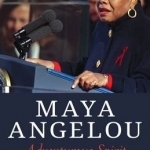
Maya Angelou: Adventurous Spirit
Book
A comprehensive biographical and critical reading of the works of American poet and memoirist Maya...
Deborah (162 KP) rated Richard III: The King in the Car Park in Books
Dec 21, 2018
I quote from the final page of this publication: "The writer of this book will face similar virulent criticism. It will be savaged in the book reviews on Amazon, mainly by non-readers, to take its ratings and thus popularity down." In fact, this is the last, but by no means the only rant by the author who appears to have a definite chip on his shoulder for some reason. Since he subjects Thomas Penn's work, 'The Winter King' to such virulent criticism, one can only suspect that he was turned down by Penn's publisher. One can hardly be surprised. I have read this book, despite wanting on a number of occasions to give up in disgust. It is full of errors of spelling (e.g. youngest for younger, now instead of not), so has evidently not had either a proof reader or an editor. There are also many factual errors with names and titles becoming hopelessly confused. On one page we're told that Sir James Tyrell was hanged and a couple of pages later we're told that Henry Tudor was so kind as to merely condescend to cut his head off!
I will admit that with pro-Ricardian sympathies I was probably never going to like this book, but it is a bit of a mess and feels like another case of jumping on the bandwagon. There is no index, no footnotes/endnotes and only a partial list of sources, which is enough to raise questions about academic rigour. If you are going to publish opinions, particular in The Great Debate, these really should be backed up by factual evidence. I think I am most irked by the hypocrisy of Mr Breverton telling us at one point that he is going to take a fresh impartial look at the subject and then immediately showing us exactly which colour he prefers his roses.
His list, near the back of the volume, of all the 'crimes' he thinks Richard III was guilty of really does teeter on the brink of blindness and absurdity. Apparently he is guilty in the case of the Earl of Warwick, son of Richard's older brother, George of Clarence, but whose claim to the throne was barred by his father's attainder (always reversible, but Warwick was then only a child of about 8 years). I'm pretty sure this Warwick was sent to Sheriff Hutton Castle to be brought up with other young persons, as befitted his status by Richard. Of course, as soon as Henry Tudor usurped the throne, this boy was locked up in the Tower only to be executed later on a trumped up charge. I think I know who the guilty party is in that case.
That is my frank opinion on this volume; I will now expect said author to savage me as he has everyone else on Amazon who has pointed out the self-evident shortcomings in this work.
I will admit that with pro-Ricardian sympathies I was probably never going to like this book, but it is a bit of a mess and feels like another case of jumping on the bandwagon. There is no index, no footnotes/endnotes and only a partial list of sources, which is enough to raise questions about academic rigour. If you are going to publish opinions, particular in The Great Debate, these really should be backed up by factual evidence. I think I am most irked by the hypocrisy of Mr Breverton telling us at one point that he is going to take a fresh impartial look at the subject and then immediately showing us exactly which colour he prefers his roses.
His list, near the back of the volume, of all the 'crimes' he thinks Richard III was guilty of really does teeter on the brink of blindness and absurdity. Apparently he is guilty in the case of the Earl of Warwick, son of Richard's older brother, George of Clarence, but whose claim to the throne was barred by his father's attainder (always reversible, but Warwick was then only a child of about 8 years). I'm pretty sure this Warwick was sent to Sheriff Hutton Castle to be brought up with other young persons, as befitted his status by Richard. Of course, as soon as Henry Tudor usurped the throne, this boy was locked up in the Tower only to be executed later on a trumped up charge. I think I know who the guilty party is in that case.
That is my frank opinion on this volume; I will now expect said author to savage me as he has everyone else on Amazon who has pointed out the self-evident shortcomings in this work.

Henrietta Maria
Book
At the heart of the English Civil War stands the wife of Charles I, Henrietta Maria. She came to...
Gareth von Kallenbach (980 KP) rated Your Highness (2011) in Movies
Aug 7, 2019
For all you minotaur lovers out there, the movie Your Highness is the film for you. Not that the movie is about them but it has the most unique minotaur I have ever seen in a movie. Your Highness takes place long ago in a land far away in a kingdom that has two princes. The oldest and heir-to-the-throne is Prince Fabious (the fabulous James Franco). He is a prince’s prince, a knight’s knight, he enjoys protecting the innocent, he slays evil cyclops and other evil things that should be slayed.
The youngest is Prince Thadeous (film co-writer Danny McBride), he is a slacker’s slacker, a player’s player, he enjoys booze and other mind-altering stuff, he lays with easy maidens and…well, you get the point. Even though the two brothers are so very different they still love each other, even if Thadeous won’t admit it. So when Prince Fabious was to be married to the beautiful yet naive Belladonna (the enchanting Zooey Deschanel) he wanted none other than his younger brother to be his best man.
But fate had other plans and what should have been the happiest of wedding days was ruined when the evil wizard Leezar (Justin Theroux) kidnaps Belladonna so he can produce an evil dragon offspring that he would use to rule the world. The two brothers vow to save her and kill Leezar. Ok, technically Thadeous is told by their father the King (Charles Dance) that either he goes with his older brother or he will be kicked out of the kingdom and it is Fabious who does the vowing. So they ride out with their most trusted knights and along the way they meet the Great Wize (not a typo) Wizard (voiced by Mario Torres. Jr.), the highly skilled fighter Isabel (played by a pretty intimidating Natalie Portman), the Minotaur (Brian Steele, a surprisingly fitting name), forest people (I loved the forest people!). Epic adventure and treachery ensue – dun dun dunn! Will they save Belladonna and the world? Will Thadeous become a respectable prince? Will the minotaur live happily ever after?
The movie is funny but the humor is on par with middle-school-aged male humor so approximately 80% of all adult males will probably find the movie funny and a lot of wives will be wondering why they married them. It also had some decent fight scenes sprinkled throughout the movie. I’ll be honest, there were a couple of scenes in the film that I wish I could un-see… the kind of stuff that never happened in any dice role-playing game that I have ever played.
Now I am sure we have all seen movies where one person’s performance was so well done that it made the other people’s performances seem lacking (whether they truly were or not). To me this movie fell victim to that problem. After all with people like Charles Dance, Natalie Portman, James Franco, Zooey Deschanel and Damian Lewis, who plays Boremont, one of the trusted Knights, it was bound to happen. Overall, a very entertaining and funny movie.
The youngest is Prince Thadeous (film co-writer Danny McBride), he is a slacker’s slacker, a player’s player, he enjoys booze and other mind-altering stuff, he lays with easy maidens and…well, you get the point. Even though the two brothers are so very different they still love each other, even if Thadeous won’t admit it. So when Prince Fabious was to be married to the beautiful yet naive Belladonna (the enchanting Zooey Deschanel) he wanted none other than his younger brother to be his best man.
But fate had other plans and what should have been the happiest of wedding days was ruined when the evil wizard Leezar (Justin Theroux) kidnaps Belladonna so he can produce an evil dragon offspring that he would use to rule the world. The two brothers vow to save her and kill Leezar. Ok, technically Thadeous is told by their father the King (Charles Dance) that either he goes with his older brother or he will be kicked out of the kingdom and it is Fabious who does the vowing. So they ride out with their most trusted knights and along the way they meet the Great Wize (not a typo) Wizard (voiced by Mario Torres. Jr.), the highly skilled fighter Isabel (played by a pretty intimidating Natalie Portman), the Minotaur (Brian Steele, a surprisingly fitting name), forest people (I loved the forest people!). Epic adventure and treachery ensue – dun dun dunn! Will they save Belladonna and the world? Will Thadeous become a respectable prince? Will the minotaur live happily ever after?
The movie is funny but the humor is on par with middle-school-aged male humor so approximately 80% of all adult males will probably find the movie funny and a lot of wives will be wondering why they married them. It also had some decent fight scenes sprinkled throughout the movie. I’ll be honest, there were a couple of scenes in the film that I wish I could un-see… the kind of stuff that never happened in any dice role-playing game that I have ever played.
Now I am sure we have all seen movies where one person’s performance was so well done that it made the other people’s performances seem lacking (whether they truly were or not). To me this movie fell victim to that problem. After all with people like Charles Dance, Natalie Portman, James Franco, Zooey Deschanel and Damian Lewis, who plays Boremont, one of the trusted Knights, it was bound to happen. Overall, a very entertaining and funny movie.
LeftSideCut (3776 KP) rated Watchmen - Season 1 in TV
Dec 26, 2019 (Updated Dec 27, 2019)
Pretty much perfect
Watchmen, in my opinion, is one of the best, if not the best graphic novels ever released. It's neon lit alternate reality setting and it's collection of jaded, flawed, and sometimes toxic characters were a far cry from usual comic book territory.
I was absolutely buzzing when I heard that HBO were going to be airing a series based on the property. A series would have more room to breathe and for exploration than the movie (that I still like, for the record). When it became apparent that it would be set some time after the comic, I was honestly a bit miffed. I was looking forward to seeing Rorschach and Co on the small screen...
But it turns out, I had no reason to be worried. Watchmen is outstanding through and through.
Plot wise, it's set in present day, and maintains the events of the comic in the 1980s. The world we're presented with is a world still feeling the effects from the mass killing via giant squid monster from the comic. A world where the police cover their faces to protect their identities. A world where racism is still rife and peddled by a white supremacist group calling themselves The Seventh Cavalry, a group that happen to wear Rorschach masks.
It's set mainly in Tulsa, Oklahoma, and it's distance from the neon New York setting of the comic gives it a more realistic feeling.
Angela Abar, aka Sister Night (Regina King), is heading the investigation into the Cavalry, and when things start to spiral out of control, the FBI send Laurie Blake (Jean Smart) - the retired Silk Spectre - to Tulsa to take over proceedings and figure out what's really happening behind the scenes.
To discuss the plot anymore than this would be spoiling it, but rest assured, after a fairly slow burning start, Watchmen quickly hits an ascending slope of quality that doesn't waver, and when concrete connections to the comic come out to play, the show hits some extremely lofty heights.
The cast are all brilliant. Regina King takes centre stage, and she manages to be badass, relatable, and sympathetic. Her relationship with her husband Cal (Yahya Abdul-Mateen II) is one of the best character elements throughout.
Characters that could be described more as 'side characters' played by the likes of Tim Blake Nelson, Louis Gossett Jr, James Woke, and Hong Chau (just to name a few), all end up with surprisingly strong development.
As for the characters from the original comic, we have the aforementioned Laurie Blake played by Jean Smart, and Adrian Veidt aka Ozymandius played by Jeremy Irons.
Jeremy Irons is a undoubtable highlight of the whole series. His portrayal of an older Veidt is pretty spot on, and his plot line is equal parts bizarre and humorous.
As seen from the trailers, Dr. Manhattan has a part to play here as well, but again, no spoilers here. Just have a look for yourself. It's great.
As the narrative jumps around and steams ahead, Watchmen still manages to touch on important subjects, such as war, family, and especially that of race and racism. There are some powerful moments littered throughout, and some genuinely emotional scenes that had me tearing up at times.
The direction and dialogue are brilliant, and the use of digital effects are mostly subtle and look great. The whole season is filled to the brim with amazing shots.
The music score is great as well, especially the original stuff, penned by Trent Reznor and Atticus Ross. Reznor's distinctive industrial sound suits the series down to the ground.
I absolutely loved Watchmen from start to finish. It's shows consistent willingness to do something new and it's a hugely ambitious project that's pulled off so damn well. I really hope that a second season comes about, but if it doesn't, then I'm suitably satisfied by what we've already been given. Just fantastic.
I was absolutely buzzing when I heard that HBO were going to be airing a series based on the property. A series would have more room to breathe and for exploration than the movie (that I still like, for the record). When it became apparent that it would be set some time after the comic, I was honestly a bit miffed. I was looking forward to seeing Rorschach and Co on the small screen...
But it turns out, I had no reason to be worried. Watchmen is outstanding through and through.
Plot wise, it's set in present day, and maintains the events of the comic in the 1980s. The world we're presented with is a world still feeling the effects from the mass killing via giant squid monster from the comic. A world where the police cover their faces to protect their identities. A world where racism is still rife and peddled by a white supremacist group calling themselves The Seventh Cavalry, a group that happen to wear Rorschach masks.
It's set mainly in Tulsa, Oklahoma, and it's distance from the neon New York setting of the comic gives it a more realistic feeling.
Angela Abar, aka Sister Night (Regina King), is heading the investigation into the Cavalry, and when things start to spiral out of control, the FBI send Laurie Blake (Jean Smart) - the retired Silk Spectre - to Tulsa to take over proceedings and figure out what's really happening behind the scenes.
To discuss the plot anymore than this would be spoiling it, but rest assured, after a fairly slow burning start, Watchmen quickly hits an ascending slope of quality that doesn't waver, and when concrete connections to the comic come out to play, the show hits some extremely lofty heights.
The cast are all brilliant. Regina King takes centre stage, and she manages to be badass, relatable, and sympathetic. Her relationship with her husband Cal (Yahya Abdul-Mateen II) is one of the best character elements throughout.
Characters that could be described more as 'side characters' played by the likes of Tim Blake Nelson, Louis Gossett Jr, James Woke, and Hong Chau (just to name a few), all end up with surprisingly strong development.
As for the characters from the original comic, we have the aforementioned Laurie Blake played by Jean Smart, and Adrian Veidt aka Ozymandius played by Jeremy Irons.
Jeremy Irons is a undoubtable highlight of the whole series. His portrayal of an older Veidt is pretty spot on, and his plot line is equal parts bizarre and humorous.
As seen from the trailers, Dr. Manhattan has a part to play here as well, but again, no spoilers here. Just have a look for yourself. It's great.
As the narrative jumps around and steams ahead, Watchmen still manages to touch on important subjects, such as war, family, and especially that of race and racism. There are some powerful moments littered throughout, and some genuinely emotional scenes that had me tearing up at times.
The direction and dialogue are brilliant, and the use of digital effects are mostly subtle and look great. The whole season is filled to the brim with amazing shots.
The music score is great as well, especially the original stuff, penned by Trent Reznor and Atticus Ross. Reznor's distinctive industrial sound suits the series down to the ground.
I absolutely loved Watchmen from start to finish. It's shows consistent willingness to do something new and it's a hugely ambitious project that's pulled off so damn well. I really hope that a second season comes about, but if it doesn't, then I'm suitably satisfied by what we've already been given. Just fantastic.

Infected by Scott Sigler
Podcast
Across America a mysterious disease is turning ordinary people into raving, paranoid murderers who...
